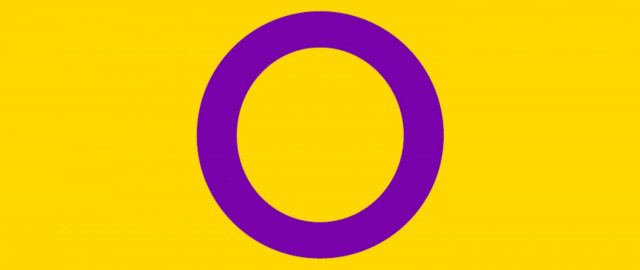Human Rights Lawyers welcome the Australian Human Rights Commission Report on the rights of people born with variations in sex characteristics

Australian Lawyers for Human Rights (ALHR) LGBT Co-Chairs, Georgia Burke and Nicholas Stewart, stand with the intersex community to welcome the Australian Human Rights Commission’s “Ensuring health and bodily integrity (2021)” report, released on 18 October 2021.
Georgia and Nicholas said: “Intersex people form a diverse population with many different kinds of bodies, sex characteristics, sex assignments, genders, identities, life experiences, and terminology and word preferences. What they share in common is an experience of having innate sex characteristics (such as chromosomes, gonads or hormones) that differ from medical norms for female or male bodies. They risk violence, stigmatisation and harmful practices because their bodies are seen as different.”
Georgia and Nicholas continued: “This report from the Australian Human Rights Commission is key to the urgent progress our society must make with regard to the acceptance and treatment of Intersex people. Intersex is a matter of bodily diversity. Intersex is not about sexual orientation; people with intersex variations have as diverse a range of sexual orientations as non-intersex (“endosex”) people. Intersex is not about an experience of transition or gender identity; Intersex people have a diverse range of gender identities, as do non-intersex people.”
Finally, Georgia and Nicholas said: “Intersex people, especially those whose diverse sex characteristics are determined at birth, in infancy or during puberty, are often the subject of surgical or hormonal interventions to “fix” their sex characteristics and make their bodies appear more typically female or male. When we listen to members of the intersex community, we know that when these interventions take place without personal, fully-informed consent, they are harmful practices. Yet they are still considered “therapeutic” in Australia, and they often take place for “psychosocial” reasons, based on clinician “belief” and “opinion”. We must understand this harm, and amplify the voices of intersex human rights advocates so that change is made.”
Article 12(1) of the International Covenant on Economic Social and Cultural Rights (ICESCR), of which Australia is a party, sets out the human right to health. That right includes the right to control one’s health and body (for example, sexual and reproductive rights) and to be free from interference (for example, free from torture and non-consensual medical treatment and experimentation).
Media Contact: To arrange an interview with Georgia or Nicholas, please contact Matt Mitchell
M: 0431 980 365 E: media@alhr.org.au



